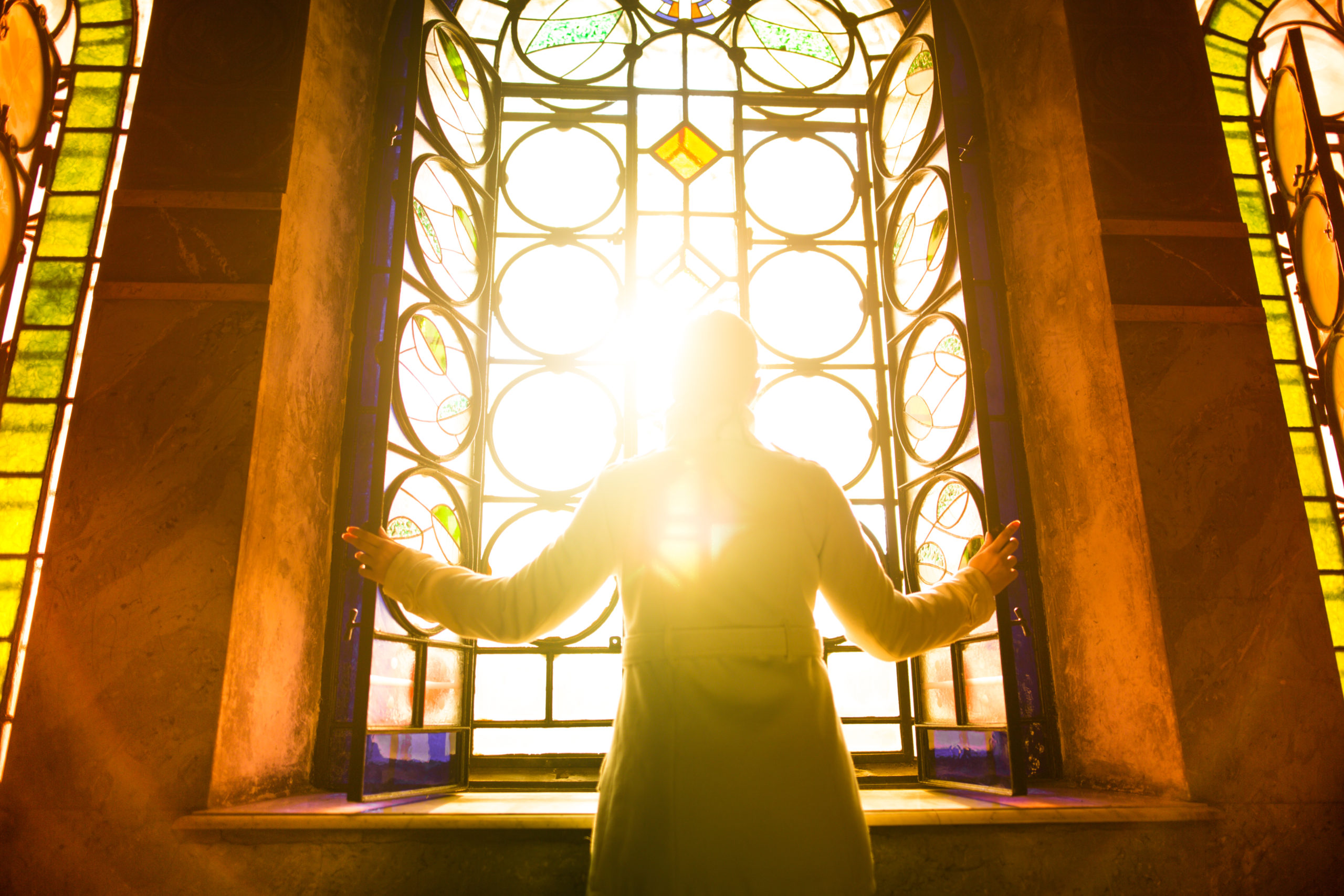
The Lord spoke to me last week, “Right now, the Church needs to understand the book of Ephesians more than the book of Revelation.”
Why? We need to see the glory of Jesus through the eyes of Scripture and revelation by the Spirit. He is the light of the world, and we need His light to guide, comfort, and lead us. Challenges are ahead, but God has made a way through Christ!
Today, I begin a series in Ephesians: “The Glory of Christ and His Church.”
Paul, an apostle of Jesus Christ by the will of God, to the saints who are in Ephesus and faithful in Christ Jesus: Grace to you and peace from God our Father and the Lord Jesus Christ. Blessed be the God and Father of our Lord Jesus Christ, who has blessed us with every spiritual blessing in the heavenly places in Christ.” (Eph. 1:1-3 NKJV)
The book of Ephesians is inspiring and captivating. Ephesians reveals the glory of Jesus, what God has done for us in Christ, and how radiant the Church is. The Church is God’s plan from the beginning! We are in Christ, seated with Him in His victory and triumph over evil.
According to Dr. NT Wright, “For Paul, in Christ is connected to Jewish thought. “In particular, he has acted for us ‘in him’. When Paul speaks of us as being ‘in Christ’, the centre of what he means is that, as in some Jewish thought, the king represents his people, so that what happens to him happens to them, and what is true of him is true of them. Think of David fighting Goliath (1 Samuel 17). David was representing Israel; he had already been anointed as king, and it wasn’t long after his victory before people realized that he was the one who would lead Israel into God’s future. So with us: Jesus has won the decisive victory over the oldest and darkest enemy of all, and if we are ‘in him’, ‘in the king’, ‘in Christ’, we shall discover step by step what that means.” [1]
Quick View—Paul’s letter to the Ephesian church is a high watermark of his writings.
The mountains surrounding Tucson are spectacular. The view from atop Mt. Lemmon affords a breathtaking view of the City of Tucson and an eighty-square mile valley surrounded by five mountain ranges. You could say we get a view of the entire landscape of the city and surrounding valley. In a similar manner, Ephesians gives us a view of important biblical themes.
Ephesians isn’t the longest or fullest of Paul’s writings, but it offers a breathtaking view of the entire landscape… you get a bird’s-eye view of one theme after another within early Christian reflection: God, the world, Jesus, the Church, the means of salvation, Christian behavior, marriage, family, and spiritual warfare.[2]
Paul’s writing in Ephesians provides a profoundly mystical element, and it offers a transcendent and glorious view of Jesus, the Church, and the believer.
But God is so rich in mercy, and he loved us so much, that even though we were dead because of our sins, he gave us life when he raised Christ from the dead. (It is only by God’s grace that you have been saved!) For he raised us from the dead along with Christ and seated us with him in the heavenly realms because we are united with Christ Jesus.” (Eph. 2:4-6 NLT)
For Paul, the follower of Christ lives in spiritual union with the victorious resurrection life of the Son of God, which spiritually elevates the believer to Christ’s heavenly realm and ascended glory. We pray from our union with Jesus and His victory to impact our world!
The whole of the preaching of Jesus, and of the apostles, is concerned with the Kingdom of God or Kingdom of Heaven, which are synonymous terms in Jewish thought. All that they taught was in context of the Kingdom of God.
From that time, Jesus began to preach and to say, “Repent, for the kingdom of heaven is at hand.” (Matt. 4:17 NKJV)
From this moment, God’s Kingdom was ushered in, conflicting with darkness. The Kingdom of God is both “already and not yet.” The full consummation of the Kingdom of God will not be realized until the return of Jesus. That said, we—as the Church—help advance God’s Kingdom in the authority of Jesus and the power of the Holy Spirit.
On outreaches, we often run into a common question, “What church do you belong to?” The world identifies Christians by their affiliation to a local church and often to a church building. While this is partially true, it’s not the entire picture.
In simplest terms, the Church is comprised of those who belong to Christ. He is the Divine One, and His glory radiates through every believer throughout eternity. Jesus is glorious, and His Church displays His glory.
The word “church” (ekklēsía) is only used a couple of times in the Gospels. In Matthew 16:18, we read “I will build My Church (Church eternal)…” and, in Matthew 18:17, it says that if there is a sinning brother and he doesn’t listen to you, go to the church (local church). Jesus mentions both the eternal, universal Church throughout the ages, and a local congregation with which we are connected.
In Acts, there are several references to the Church or churches, and Paul mentions church and churches frequently in his epistles.
Consider what the Theological Dictionary of the New Testament says concerning Paul’s use of the word church (ekklēsía) in Ephesians:
It is Christ’s body, with Christ himself as head (Col. 1:18, 24; Eph. 1:22; 5:23). There is a relation of coordination and subordination between it and Christ (Eph. 5:24–25, 29). The church is to be holy and without blemish (5:27). Through it, God’s wisdom is to be made known (3:10). The human statements here circle around a divine mystery (3:4–5). All that concerns Christ and the church is God’s doing. The mystery of their union forms a model for that of husband and wife even as it is also illustrated by this (5:25ff.). The images are taken from the contemporary world: the Redeemer overcomes hostile powers on his heavenly ascent (Eph. 4:8ff.), breaks down the wall of division (2:14ff.), creates the new man (2:15), loves and cherishes the church as his spouse (5:22ff.), and builds it up as his body (2:19ff.).” [3]
The NT itself makes no distinction between an invisible triumphant church and a visible militant church. The church, as the individual congregation representing the whole, is always visible, and its righteousness and holiness are always imputed through faith.” [4]
The Church isn’t the Kingdom of God, but the Church is of the Kingdom and it is the agent and messenger of the Kingdom.
Jesus said, “the gates of hell wouldn’t prevail against his church” (Matt 16:18 NKJV). Satan is defeated, God’s kingdom is advancing, and the Church will prevail. The Church is a force, an agent of God’s love and power.
When we (the Church) radiate His glory through love, unity, and His power—the world notices. The world is irresistibly attracted to the Church.
We are “already glorious” and “not yet glorious.” Positionally, in Christ, we are righteous, holy, and glorious, but we are also becoming more like Jesus and reflecting His glory in greater measures.
God no longer sees us in a fallen state—that died in Christ. We are in a new state, becoming more like Christ and reflecting His image and glory in greater degrees as we walk with and grow in Him. The Father speaks to our identity in Christ, calling us up higher.
To be His glorious Church, we must cooperate with the Holy Spirit and God’s Word to become more like Jesus—radiating His glory. Secondly, we embrace being part of the family of God.
Following Jesus means more than just believing, it means belonging. It means participating in the local church body, being a contributing member in God’s family.
Now you are no longer strangers to God and foreigners to heaven, but you are members of God’s very own family, citizens of God’s country, and you belong in God’s household with every other Christian.” (Eph. 2:19 TLB)
Our relationship to Christ is personal and unique, but God never intended it to be private. The New Testament assumes participation with other believers in a local congregation.
However, in today’s culture, individualism prevents many believers from being committed in local church communities. As a result, many miss out on the benefits of discipleship and accountability that happens in community. Hybrid forms of church have emerged where people are connected and involved via online avenues, but consistent commitment and interaction with others is still required to glean the benefits of Christian community.
The difference between being a church attender and a church member is commitment. Attenders are spectators from the sidelines; members get involved in the ministry. Attenders are consumers; members are contributors and share the responsibilities of helping to develop one another as disciples—which is our highest calling!
Ephesians is a view of the Glory of Christ and His Church
For context, Paul wrote Ephesians while imprisoned (under house arrest) (Acts 28:16) in Rome (AD 60-61).
He also wrote Philippians, Colossians, and Philemon during this time, as well—known as the Prison Letters. The letter to the Ephesians was most likely written as an encyclical letter—one to be read by several congregations.
The letter is divided into two main sections: 1.) The Believer’s Position (Ch. 1-3), and 2.) The Believer’s Practice (Ch. 4-6).
Ephesus was a port city on the eastern edge of the Mediterranean Sea, near the modern-day city of Izmir, Turkey. Ephesus was 1 of 5 major cities in the Roman Empire (Rome, Corinth, Antioch, Alexandria, and Ephesus). Ephesus was a commercial, political, and religious center for all of Asia Minor.
Revelation 2 and 3 identify Ephesus as one (first) of seven churches to whom Jesus addresses. Jesus admonished the church of Ephesus to “return to your first love” (Rev. 2:1-7).
Acts 18:19 mention’s Paul’s first visit (AD 55) to Ephesus. Later, Paul returns to minister in Ephesus for three years (Acts 19:8-12,18-20) and a move of the Spirit occurs.
I believe Paul saw first-hand the reality of the glory of Jesus and His Church when he was in Ephesus for three years. A great revival occurred, the region was shaken, and this was all followed by a riot due to the move of God!
What we see in Acts 19 is both the Word and Spirit at work. As Paul taught on the Kingdom of God, the Holy Spirit empowered the disciples who, in turn, began to impact their region with the gospel. Notable miracles occur.
Then, during his last visit, in Acts 20:17-38, referred to as Paul’s farewell address to the Ephesians, we glean an understanding of Paul’s deep affection and relationship with this church.
I’ll pick back up next week with our study in Ephesians!

For a deeper look at this topic, watch the Passion Church message “The Glory of Christ and His Church”:
[1] Tom Wright, Paul for Everyone: The Prison Letters: Ephesians, Philippians, Colossians, and Philemon (London: Society for Promoting Christian Knowledge, 2004), 6.
[2] Ibid., 3.
[3] Gerhard Kittel, Gerhard Friedrich, and Geoffrey William Bromiley, Theological Dictionary of the New Testament, Abridged in One Volume (Grand Rapids, MI: W.B. Eerdmans, 1985), 398–399.
[4] Ibid, 401.






